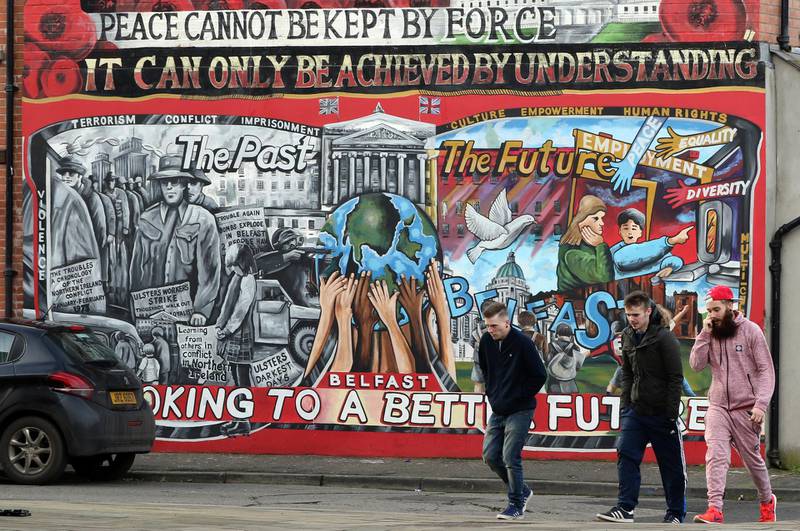
Link to the recording of the symposium: https://ubicast.visio.univ-rennes2.fr/channels/#the-good-friday-agreement-after-25-years-achievements-shortfalls-and-opportunities
2023 marks the 25th anniversary of the Good Friday Agreement, with a whole generation of Northern Irish citizens having grown up in a “post-conflict” environment. The anniversary year constitutes an opportunity to reflect on the achievements, stumbling blocks and possible shortfalls of the historic accord and to focus on the way forward. As Tony Blair concluded, “The peace, like the political institutions to which the Good Friday Agreement gave rise, was imperfect and fragile, and it remains so. But compare Northern Ireland today with how it was a quarter-century ago, and you can legitimately call what has been achieved a transformation”[1]
Exogenous and endogenous factors have continued to play their part in fashioning the political, social and economic climate in the North. The decision of the UK to leave the EU has exacerbated divisions, brought the border question to the fore and reawakened ethno-nationalist tensions[2]. The cornerstone of the consociational framework, the Northern Ireland Assembly, has been suspended for more than a third of the period. However, the “middle ground” appears to be gaining momentum with the rising fortunes of the Alliance party in recent Assembly Elections.
The 2021 census revealed that Catholics now outnumber Protestants for the first time since the creation of Northern Ireland. Both north and south of the border, Sinn Féin continues to gain ground, topping the polls in the most recent council and Assembly elections in the North and receiving the highest proportion (24.5%) of first-preference votes in the Republic’s 2020 general election. This changing political landscape in the Republic will inevitably have repercussions on the future relationship between the North and South.
Large-scale violence has subsided and few envisage a return to the Troubles. This symposium will therefore consider what can be done to improve this “imperfect” or “negative” peace, towards building a more integrated and harmonious society in the North and a shared future on the island.
Provisional programme
Session 1: 13h30 -15h30
- Katy Hayward (Queen’s University Belfast), “Your future is our future’: The 1998 Agreement as an international concern & responsibility”
- Timothy White (Xavier University, USA), “The Good Friday Agreement and Consociationalism: Historicizing a Power Transition in Northern Ireland’s Politics”
- Christophe Gillissen (Université de Caen), “Brexit: the view from Dublin”
Session 2: 16h-18h
- Charlotte Barcat (Université de Nantes), “Truth recovery, amnesties and dealing with the past in Northern Ireland: from the Saville Inquiry to the Legacy Bill”
- Marisa McGlinchey (University of Coventry), “Why there are still IRAs in Ireland 25 years on from the Good Friday Agreement: Dissident Irish republicanism”
- Theresa Reidy (University College Cork), “‘Not in my lifetime’ is no more: attitudes to unification and the political status of Northern Ireland in the Republic’”
[1] https://www.project-syndicate.org/commentary/lessons-from-good-friday-agreement-25- years-later-by-tony-blair-2023-04?barrier=accesspaylog (accessed 12 June 2023).
[2] The post conflict generation in Northern Ireland: Citizenship education, political literacy and the question of sovereignty, Matthew Milliken and Alan Smith, Education, Citizenship and Social Justice 2022 17:3, 235-254.

